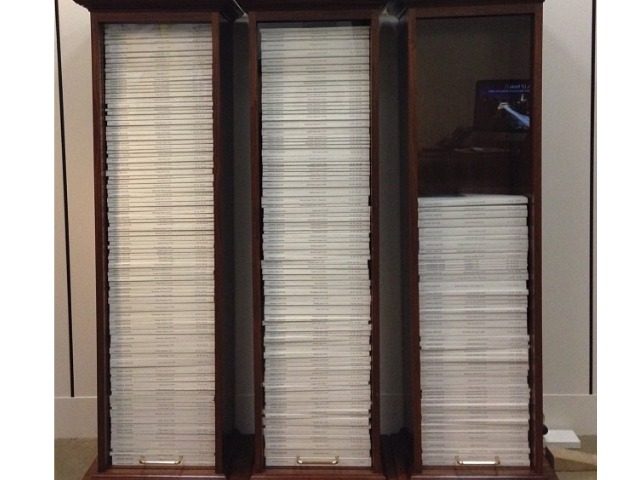President Barack Obama set the all-time record in November 2016 for the number of regulatory pages in the Federal Register at 81,640 pages, but in the last month he has pushed that record up by over 12 percent to 91,642 pages.
The Federal Register as the official journal of the federal government of the United States and contains government agency rules, proposed rules, and public notices.
When Barack Obama was sworn in as the 44th President of the United States in January 2009, the Federal Register stood at a record 79,435 pages, according to the Foundation for Economic Education. The Federal Register grew slowly to 80,250 pages over the next seven years, and then a little faster to 81,640 pages in early November 2016. Obama grew the Federal Register by less than three percent in 7.8 years, but the bureaucratic regulatory machine has gone ballistic over the last six weeks.
Breitbart News reported in May that a study that found increased “regulatory drag” had not only eliminated about a third of U.S. economic growth since 1980, but it also explained why the top “one percent’s inflation-adjusted share of income has tripled, while the middle class has lost income,” according to the Mercatus Center at George Mason University.
Mercatus researchers documented that the annual cost to the U.S. Gross Domestic Product for regulatory expansion since 1980 has averaged a negative -0.8 percent per year. On a per capita basis, that almost equaled the entire one percent slowdown for average annual economic growth in the period since 1980.
Increased “regulatory drag” also explained why income inequality that shrank dramatically from 1946 to 1980, as the 60 percent of Americans who called themselves “middle class” saw wages grow by two percent faster than inflation, has since bolted higher as the top one percent’s share of all income jumped from 22 to 35 percent.
President Franklin D. Roosevelt consolidated the first 161 volumes of U.S. regulations into the Code of Federal Regulations in 1935. Referred to as the Federal Registry, the Code was only 18,193 pages long when it was first published in 1938.
President Harry S. Truman began deregulating the economy in 1950 by cutting the number of pages in the Registry from 23,454 to 9,745 pages. Many economists credit Truman’s action of getting government “out of the way” of the economy as launching a three-decade boom.
The Federal Registry grew slowly over the next 26 years. But it ballooned by over 40 percent to 173,258 pages during the Carter Administration. Before Obama, Jimmy Carter held the one-year record by adding 11,889 pages in 1980, in what was characterized as an effort to restrain incoming Republican President Ronald Reagan’s economic initiatives.
Carter also issued “Executive Order 12044 – Improving Government Regulations” in 1978 to drastically increase the reach of the federal government into the daily lives of its citizens. Although the EO states, “SECTION 1. Policy. Regulations shall be as simple and clear as possible. They shall achieve legislative goals effectively and efficiently,” the language became a hunting license for powerful bureaucrats to further politicize and expand the scope and reach of congressional legislation under “goal setting.”
In the run-up to this year’s elections, the National Association of Manufacturers (NAM) detailed the disproportionately negative impact regulations have on smaller businesses. Although the average cost per employee to comply with federal regulations is advertised as $19,564, it is only $13,750 for large companies with over 100 employees, $18,243 for companies with 50 to 99 employees, and $34,671 for firms with fewer than 50 employees.
NAM wrote that given that almost all the employment gains each year are created by small business, this explained why the inflation-adjusted hourly wage for middle class workers peaked at $21.60 in 1978 and is still down after 38 years at $21.45 today.
Just as Democrat President Carter spiked regulations just before Republican Ronald Reagan took the oath of office in 1981, President Obama has taken actions that may restrain how fast President-elect Trump came implement his economic agenda.

COMMENTS
Please let us know if you're having issues with commenting.